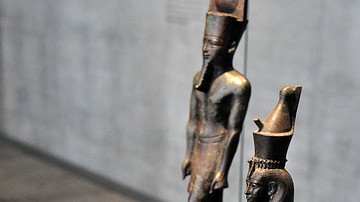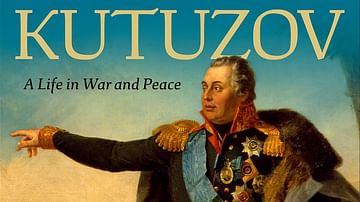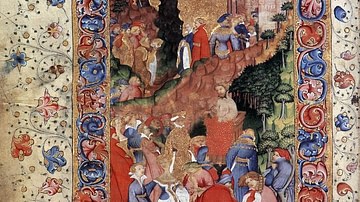Review

| Rating: | |
|---|---|
| Title: | Kutuzov: A Life in War and Peace |
| Author: | Alexander Mikaberidze |
| Audience: | University |
| Difficulty: | Hard |
| Publisher: | Oxford University Press |
| Published: | 2022 |
| Pages: | 816 |
This book is a lively, detailed, and comprehensive biography of the man who led imperial Russian forces against Napoleon's Grande Armee in 1812. Based on vast research in imperial archives and published memoirs and diaries, it will be of interest to scholars and the educated public alike, and it should stand as the standard biography of Kutuzov for decades.
Mikhail Illarionovich Kutuzov is best known in the West as the general who led imperial Russian forces to victory over Napoleon during his 1812 invasion of Russia. In Russian culture, Kutuzov became – almost immediately after his death in 1813 – a mythic figure, part of the national pantheon of heroes. To Western readers, he is above all the man presented by Leo Tolstoy in War and Peace: calm, inert, patient, allowing events to unfold before him. In this meticulously researched biography, Alexander Mikaberidze strips off layers of mythmaking and offers a balanced, judicious life of Kutuzov.
Just a fraction of this biography is devoted to the 1812 campaign for which Kutuzov is most famous, and in this lies the work’s key intervention: presenting Kutuzov as a courtier, a political animal, and a military thinker shaped by his experiences on the imperial borderlands with Poland and, especially, the Ottoman Empire. The first section of the book details Kutuzov’s early childhood and professional rise. Much of this story, in broad strokes, is typical of any Russian noble of the era. Obligated by his social position to enter state service, particularly the military, Kutuzov did the same. By 1792, having been decisive in winning the Russo-Ottoman War, he became a prominent figure among Russian generals.
Becoming part of the imperial elite class brought new challenges and dangers. The following years would demand all of Kutuzov’s formidable political talents in a variety of posts, as he jockeyed with rivals for favor. Particularly while Catherine the Great remained alive, he showed himself to be a master of the “world of fawning, prestige, and intrigue” (142) that characterized St. Petersburg. Catherine’s death brought to the throne her son Paul, who despised her, and put Catherine's favorites in a precarious position. Kutuzov navigated this by keeping his head down and providing useful services for the erratic new tsar. Only after Paul’s murder in a coup and the rise of his son, Alexander I, did Kutuzov’s star fall. In 1802, while Kutuzov served as the military governor of St. Petersburg, Alexander – who had “never really liked [him]” – found the necessary pretext to dismiss him from service (170).
Despite Alexander's well-known distaste for Kutuzov, the general was appointed in 1812, first as commander of forces in St. Petersburg and then as commander of all forces facing Napoleon. Ultimately, in the same year, Kutuzov's aristocratic background, charisma, popularity, and patriotism united a divided army with squabbling commanders. These credentials, in turn, made it politically possible to retreat, draw Napoleon deep into Russia, and then compel him to retreat through devastated territory. Kutuzov's avoidance of decisive battles during this retreat stemmed from considerations of grand strategy, attempting to maintain Russian military strength and with it influence on the shape of post-Napoleonic Europe. Though Mikaberidze generally eschews the hagiographic tone that Kutuzov’s other biographers have employed, it is difficult to disagree with his conclusion that “few figures in history have done more while appearing to do less” (464). Kutuzov died in 1813, after driving Napoleon from Russia but before the difficult allied campaigns that took place that year.
This book contains 20 maps and over 200 pages of notes, making it a great source for scholars to conduct further research. Alexander Mikaberidze, the author of the highly acclaimed The Napoleonic Wars: A Global History (2020), is Professor of History and Ruth Herring Noel Endowed Chair at Louisiana State University in Shreveport. A brief review is insufficient to discuss the rich nuance and detail in which Kutuzov: A Life in War and Peace abounds. The determined reader will find Mikaberidze's work a compelling story situating Kutuzov not only in imperial Russian culture and politics but in the broader context of European military history in the late 18th and early 19th centuries. This book should remain the standard English-language biography of Kutuzov for years to come.
About the Reviewer
Cite This Work
APA Style
Campbell, I. (2023, May 29). Kutuzov: A Life in War and Peace. World History Encyclopedia. Retrieved from https://www.worldhistory.org/review/355/kutuzov-a-life-in-war-and-peace/
Chicago Style
Campbell, Ian. "Kutuzov: A Life in War and Peace." World History Encyclopedia. Last modified May 29, 2023. https://www.worldhistory.org/review/355/kutuzov-a-life-in-war-and-peace/.
MLA Style
Campbell, Ian. "Kutuzov: A Life in War and Peace." World History Encyclopedia. World History Encyclopedia, 29 May 2023, https://www.worldhistory.org/review/355/kutuzov-a-life-in-war-and-peace/. Web. 29 Apr 2025.




